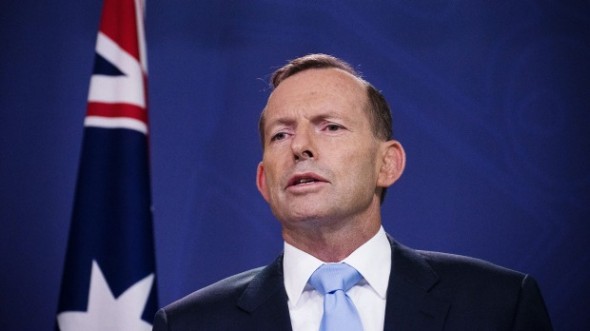 Abbott government is looking increasingly isolated on international stage over its climate policies, and has been labelled a “climate villain”. This, as the fossil fuel civil war moves to Australia, with the gas industry ridiculing the environmental claims of “clean coal”. The international pressure on the Abbott government over its climate policies is increasing, with Australia coming under unprecedented scrutiny from its major trading partners at an international conference, and a former UN chief labeling Australia as one of the world’s major “climate villains”. In quite extraordinary circumstances in Bonn last night, Australia’s climate ambassador Peter Woolcott was forced to field questions on the floor of the UN conference in Bonn, trying to defend the Abbott government’s hodge-podge of policies. The other countries – including international heavyweights China, the US, Brazil and the UK – wanted explanations about why Australia had only offered a 5 per cent cut out to 2020; its new policies since abandoning the carbon price and replacing it with the controversial emissions reduction fund, and how that mechanism could possibly be scaled up; and on its cuts to the renewable energy target. The scrutiny highlights to what extent international political momentum is surpassing Australia and how astonished the international community is by its efforts to become the first country to ditch a carbon price, and the first to slash its renewable energy target. Kofi Annan, the former UN secretary general now working with the Africa Progress Panel, labelled Australia – along with Canada and Japan – one of three climate villains and a “free-rider” on carbon emissions. As political pressure mounts, so too does business pressure. The civil war that has broken out in the fossil fuel industry between Big Oil and Big Coal moved to Australia this week, with thermal coal – Abbott’s favourite commodity – being ridiculed by the gas industry for being exactly the opposite of what Abbott claims it is, good for humanity. “Give me a break – who coined ‘clean coal’ and why did we let that happen,” said Peter Coleman, the head of Australian oil and gas giant Woodside Petroleum. “Natural gas should and must play a key role in addressing climate change and we must step up.” This came just days after six European oil majors called for a substantial carbon price to be imposed to phase out coal production so it could be replaced with more expensive gas. In Germany, a similar rift has emerged among the big four utilities, with EnBW calling for additional levies on coal-fired generation, to accelerate the phase-out of coal – brown coal in particular. Unlike the other big three, EnBW does not operate brown coal plants, although Vattenfall is trying to find a buyer for its assets, and E.ON is putting its into a different company. This is hugely significant for the Abbott government, and its economy. The whole Abbott strategy has been to boost coal, and pull down the legacy of the Greens, as Industry Minister Ian Macfarlane explained to a business meeting last year, in justifying his attacks on renewable energy. This approach – in the context of climate policy, and the declaration of war on Big Coal by Big Oil – is looking foolhardy. Economist Ross Garnaut pointed out that the cost of Australia investing in what will be stranded assets may already exceed what would have been the cost of concerted climate action out to 2050. The Abbot government, creating a $5 billion fund that could invest in coal power plants and supporting infrastructure in the far north, has been openly encouraging Townsville to push for a coal-fired generator. Back in Bonn, the US kicked off its questioning of Australia’s representative, Peter Woolcott, by demanding to know how Australia’s emissions reduction fund could be scaleable to meet any higher post-2020 targets Australia might table. Of course, it isn’t. The UK queried the credibility of the fund, and its “additionality” – in other words, whether it was just handing over taxpayers’ money to projects that existed already. Australia was also pursued about cuts to the RET, with Woolcott refusing to acknowledge there had been a cut (from 41,000GWh to 33,000GWh) and insisting, instead, that the target had been “lifted” from 20 per cent to 23 per cent. Australia was also queried on the fairness of its targets. South Africa, in particular, demanded to know how Australia justified its targets being conditional on other similar countries doing more. After Australia repeatedly said they were reviewing their 2020 targets, the US asked if it could outline the process they were undertaking. But it couldn’t give details, or elaborate on the timing. Erwin Jackson, the deputy head of the Climate Institute, said it was clear that the international community was highly sceptical about Australia’s policy framework. “Australia failed to clarify why it should do less than other countries like the US, and why it is not focused on increasing its currently inadequate 2020 pollution targets in line with the actions of other countries.” There is clear concern that Australia is not lifting its weight to help limit global warming and the government’s actions don’t match their words,” said Kellie Caught, WWF Australia’s national manager of climate change. This article has been sourced from http://reneweconomy.com.au/
0 Comments
Leave a Reply. |
|

 RSS Feed
RSS Feed


